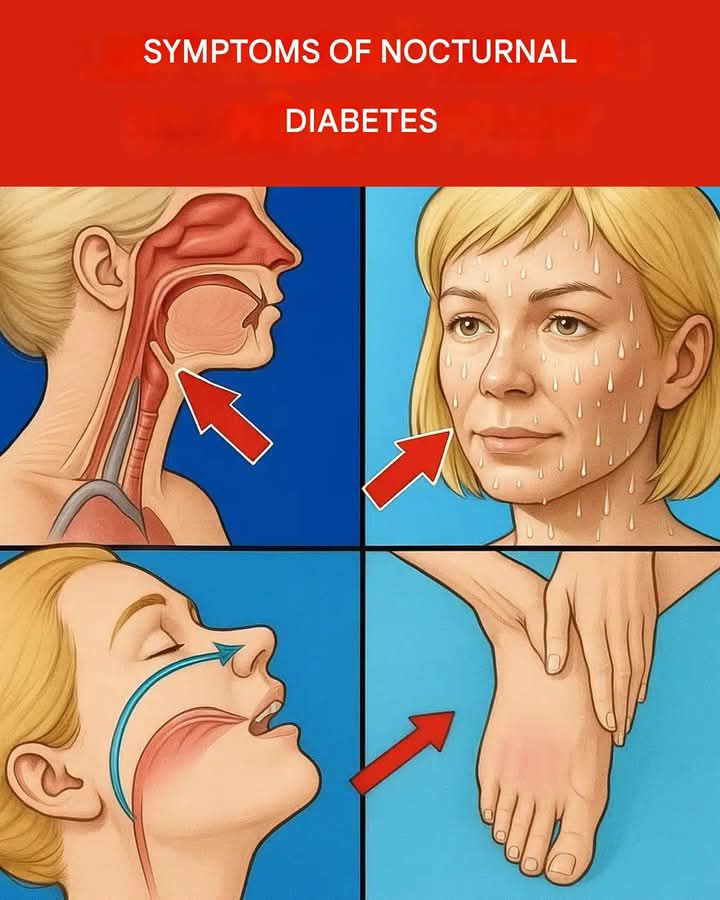
Do you often wake up at night for no apparent reason? Are you extremely thirsty or need to go to the bathroom several times during the night? What if your body was trying to send you a subtle but important warning signal? Some nighttime symptoms can be the first signs of a blood sugar imbalance… Curious to know if your sleep says more than you think? Here’s what to pay attention to!
Understanding Diabetes Symptoms at Night
Diabetes, often called a “silent thief,” can develop slowly, sending out subtle warnings, especially at night. Even if everything seems calm on the outside, your body struggles to balance blood sugar levels.
Common nighttime symptoms include:
Nocturnal polyuria: This frequent need to urinate at night, similar to a leaky faucet, may indicate that there is too much sugar in the blood that the kidneys are trying to eliminate.
Excessive thirst: Drinking a glass of water before bed is normal, but repeatedly waking up with a dry throat may indicate high blood sugar.
Night sweats: Sweating profusely for no apparent reason may be linked to hypoglycemia (a sudden drop in blood sugar).
Night hunger: A sudden, ravenous appetite in the middle of the night may be a sign of an imbalance in blood sugar levels.
Insomnia and frequent awakenings: A brain deprived of an adequate balance of blood sugar will have a harder time falling asleep in a deep, restful sleep.
Why does diabetes disturb your nights so much?
Imagine your body as an orchestra: to play a beautiful symphony, each instrument must be perfectly tuned. In the case of diabetes, it is as if some musicians were playing out of tune. The result: repeated nighttime awakenings that interrupt your natural rhythm.
Blood sugar levels naturally fluctuate throughout the night. In a diabetic, these variations are more extreme, creating a real emotional roller coaster for the body: a peak of hyperglycemia at the beginning of the night, hypoglycemia in the early morning…
How to react to these nighttime symptoms?
If you recognize many of these signs, it is essential not to ignore them. Here are some simple steps to follow:
Consult a healthcare professional: only a doctor can confirm the diagnosis with appropriate tests.
Adopt good eating habits: choose a light dinner, rich in fiber and low in fast sugars to stabilize blood sugar levels during the night.
Establish a regular sleep routine: going to bed and getting up at regular times helps the body better manage its energy needs.
Monitor your blood sugar levels if you have already been diagnosed: modern devices allow continuous monitoring to avoid unpleasant surprises at night.
Prevention is better than cure: an adage that should not be ignored
In France, it is estimated that around 500,000 people do not know they have diabetes. It is a bit like driving at night without headlights: dangerous and unpredictable. Recognizing the signs early not only improves your quality of life, but also helps prevent long-term complications.
A simple blood test, often performed during a visit to the doctor, may be enough to shed light on your situation.
In summary
Do not underestimate what your nights are trying to tell you. If thirst, the urge to urinate or night sweats become regular visitors to your nights, it is time to listen to your body. Because better understanding is already better protecting yourself!